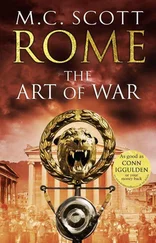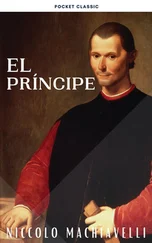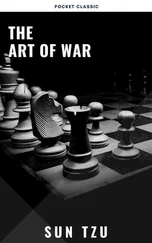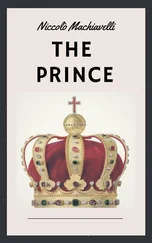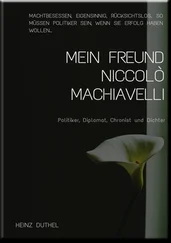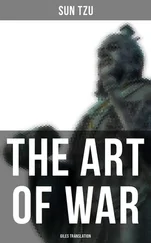COSIMO
If we first desired to hear your discussion of these matters, truly what you have said up to now redoubles that desire. We thank you, therefore, for what we have had and ask you for the rest.
FABRIZIO
Since this is your pleasure, I want to begin to treat of this matter from the beginning being able in that way to demonstrate it more fully, so that it may be better understood. The aim of those who want to make war is to be able to combat in the field with every (kind) of enemy, and to be able to win the engagement. To want to do this, they must raise an army. In raising an army, it is necessary to find men, arm them, organize them, train them in small and large (battle) orders, lodge them, and expose them to the enemy afterwards, either at a standstill or while marching. All the industry of war in the field is placed in these things, which are the more necessary and honored (in the waging of war). And if one does well in offering battle to the enemy, all the other errors he may make in the conduct of the war are supportable: but if he lacks this organization, even though he be valiant in other particulars, he will never carry on a war to victory (and honor). For, as one engagement that you win cancels out every other bad action of yours, so likewise, when you lose one, all the things you have done well before become useless. Since it is necessary, therefore, first to find men, you must come to the Deletto (Draft) of them, as thus the ancients called it, and which we call Scelta (Selection): but in order to call it by a more honored name, I want us to preserve the name of Deletto. Those who have drawn up regulations for war want men to be chosen from temperate countries as they have spirit and are prudent; for warm countries give rise to men who are prudent but not spirited, and cold (countries) to men who are spirited but not prudent. This regulation is drawn up well for one who is the Prince of all the world, and is therefore permitted to draw men from those places that appear best to him: but wanting to draw up a regulation that anyone can use, one must say that every Republic and every Kingdom ought to take soldiers from their own country, whether it is hot, cold, or temperate. For, from ancient examples, it is seen that in every country, good soldiers are made by training; because where nature is lacking, industry supplies it, which, in this case, is worth more than nature: And selecting them from another place cannot be called Deletto, because Deletto means to say to take the best of a province, and to have the power to select as well those who do not want to fight as those who do want to. This Deletto therefore, cannot be made unless the places are subject to you; for you cannot take whoever you want in the countries that are not yours, but you need to take those who want to come.
COSIMO
And of those who want to come, it can even be said, that they turn and leave you, and because of this, it can then be called a Deletto.
FABRIZIO
In a certain way, you say what is true: but consider the defects that such as Deletto has in itself, for often it happens that it is not a Deletto. The first thing (to consider), is that those who are not your subjects and do not willingly want to fight, are not of the best, rather they are of the worst of a province; for if any are troublesome, idle, without restraint, without religion, subject to the rule of the father, blasphemous, gamblers, and in every way badly brought up, they are those who want to fight, (and) these habits cannot be more contrary to a true and good military life. When there are so many of such men offered to you that they exceed the number you had designated, you can select them; but if the material is bad, it is impossible for the Deletto to be good: but many times it happens that they are not so many as (are needed) to fill the number you require: so that being forced to take them all, it results that it can no longer be called the making of a Deletto, but in enlisting of infantry. The armies of Italy and other places are raised today with these evils, except in Germany, where no one is enlisted by command of the Prince, but according to the wishes of those who want to fight. Think, therefore, what methods of those ancients can now be introduced in an army of men put together by similar means.
COSIMO
What means should be taken therefore?
FABRIZIO
What I have just said: select them from your own subjects, and with the authority of the Prince.
COSIMO
Would you introduce any ancient form in those thus selected?
FABRIZIO
You know well it would be so; if it is a Principality, he who should command should be their Prince or an ordinary Lord; or if it is a Republic, a citizen who for the time should be Captain: otherwise it is difficult to do the thing well.
COSIMO
Why?
FABRIZIO
I will tell you in time: for now, I want this to suffice for you, that it cannot be done well in any other way.
COSIMO
If you have, therefore, to make ibis Deletto in your country, whence do you judge it better to draw them, from the City or the Countryside?
FABRIZIO
Those who have written of this all agree that it is better to select them from the Countryside, as they are men accustomed to discomfort, brought up on hard work, accustomed to be in the sun and avoid the shade, know how to handle the sword, dig a ditch, carry a load, and are without cunning or malice. But on this subject, my opinion would be, that as soldiers are of two kinds, afoot and on horseback, that those afoot be selected from the Countryside, and those on horseback from the City.
COSIMO
Of what age would you draw them?
FABRIZIO
If I had to raise an (entirely) new army, I would draw them from seventeen to forty years of age; if the army already exists and I had to replenish it, at seventeen years of age always.
COSIMO
I do not understand this distinction well.
FABRIZIO
I will tell you: if I should have to organize an army where there is none, it would be necessary to select all those men who were more capable, as long as they were of military age, in order to instruct them as I would tell them: but if I should have to make the Deletto in places where the army was (already) organized, in order to supplement it, I would take those of seventeen years of age, because the others having been taken for some time would have been selected and instructed.
COSIMO
Therefore you would want to make an ordinance similar to that which exists in our countries.
FABRIZIO
You say well: it is true that I would arm them, captain them, train them, and organize them, in a way which I do not know whether or not you have organized them similarly.
COSIMO
Therefore you praise the ordinance?
FABRIZIO
Why would you want me to condemn it?
COSIMO
Because many wise men have censured it.
FABRIZIO
You say something contrary, when you say a wise man censured the ordinance: for he can be held a wise man and to have censured them wrongly.
COSIMO
The wrong conclusion that he has made will always cause us to have such a opinion.
FABRIZIO
Watch out that the defect is not yours, but his: as that which you recognized before this discussion furnishes proof.
COSIMO
You do a most gracious thing. But I want to tell you that you should be able to justify yourself better in that of which those men are accused. These men say thusly: either that it is useless and our trusting in it will cause us to lose the State: or it is of virtue, and he who governs through it can easily deprive her of it. They cite the Romans, who by their own arms lost their liberty: They cite the Venetians and the King of France, of whom they say that the former, in order not to obey one of its Citizens employed the arms of others, and the King disarmed his People so as to be able to command them more easily. But they fear the uselessness of this much more; for which uselessness they cite two principal reasons: the one, because they are inexpert; the other, for having to fight by force: because they say that they never learn anything from great men, and nothing good is ever done by force.
Читать дальше


